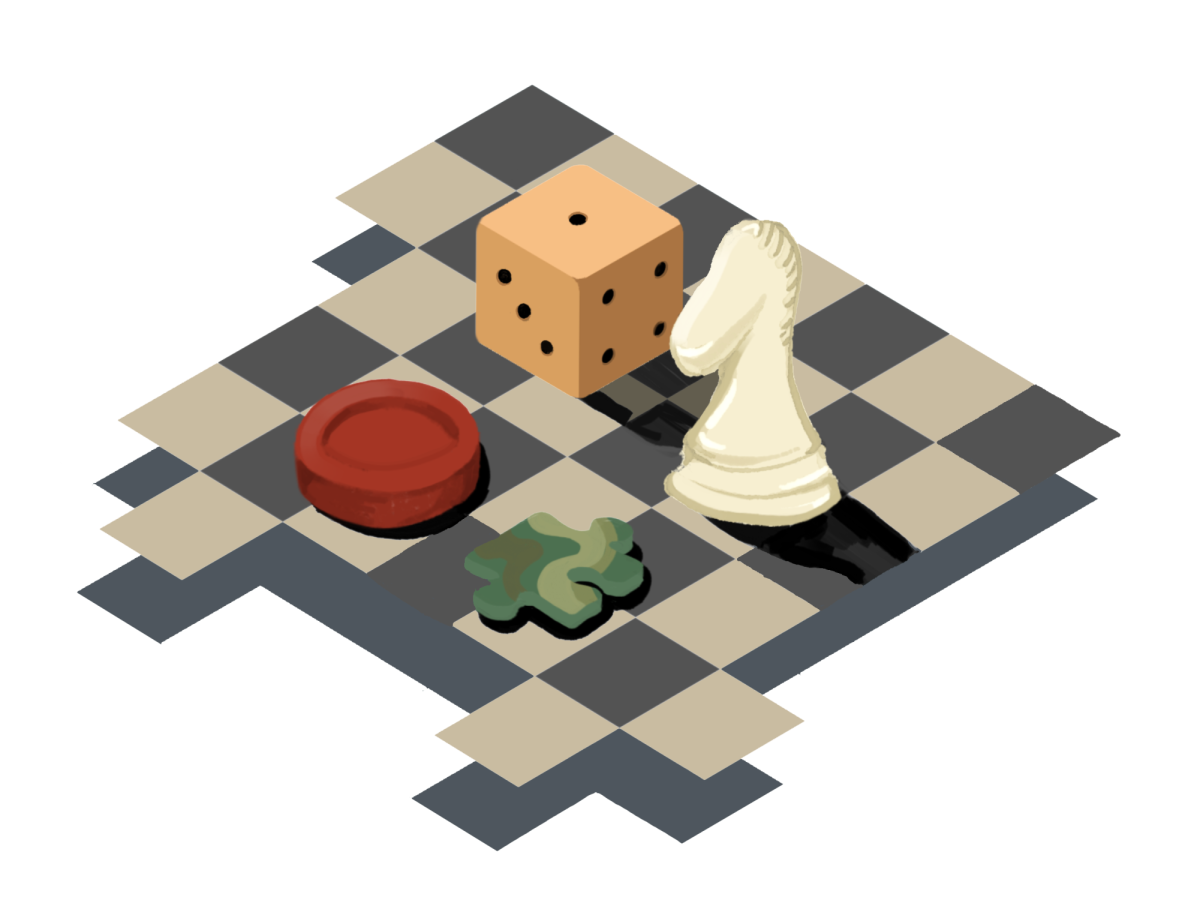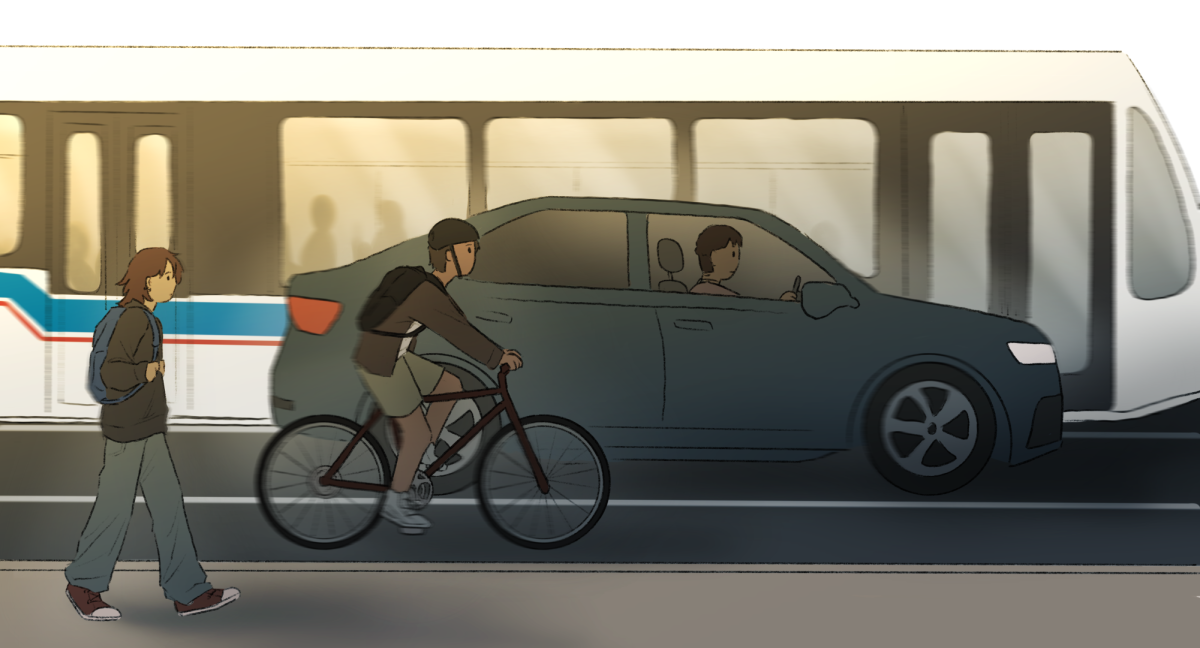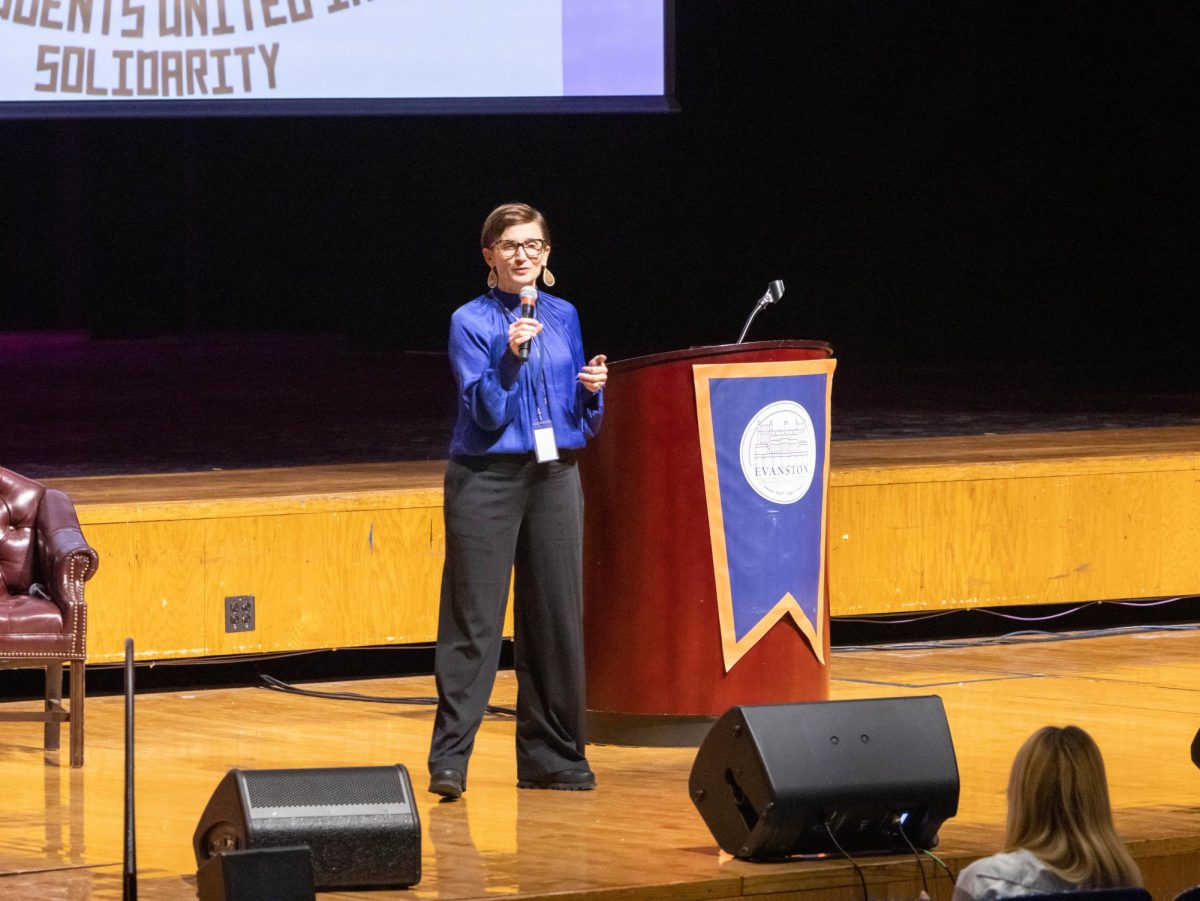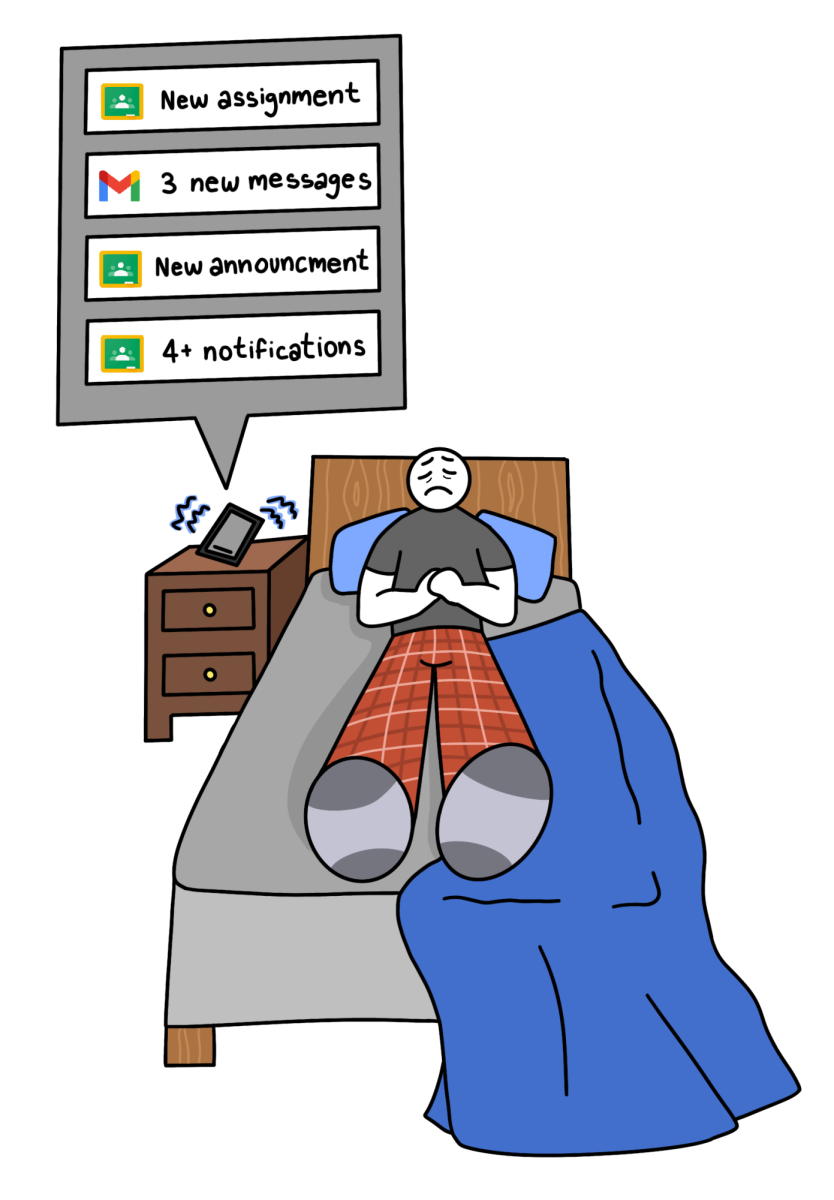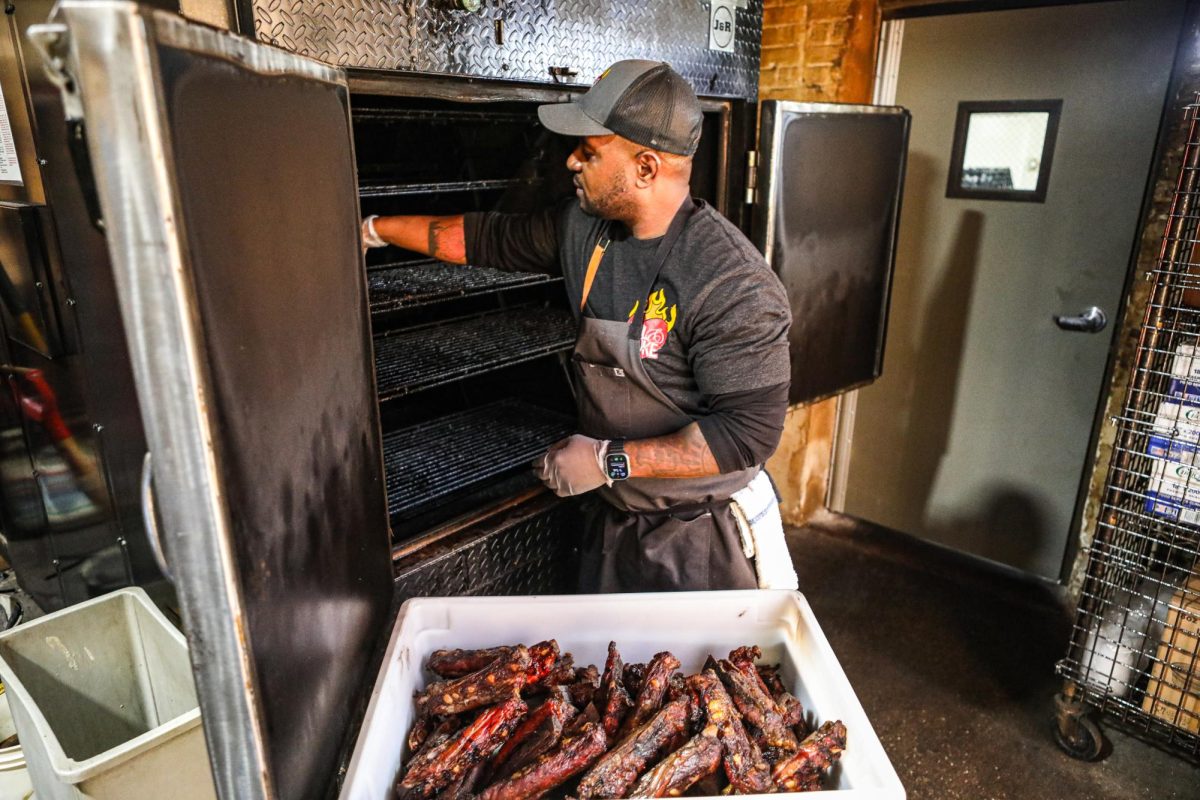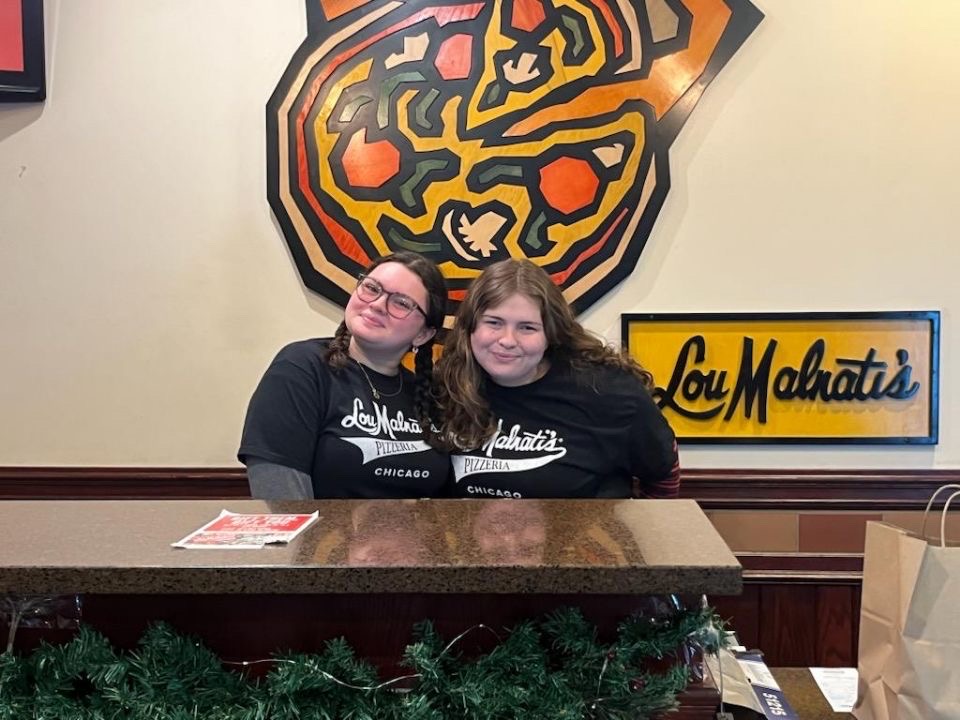Two years ago, ETHS senior Foster Pratt walked into Alley Gallery in downtown Evanston sporting a shirt that read ‘shut up and sit down,’ the name of a popular board gaming company. One of the owners passed him and recognized the logo, and they soon began discussing their shared love of board gaming.
“20 minutes later, he offer[ed] me a job, and I’ve been working there for two years. If I wasn’t wearing that shirt on that day, I would have never made that connection,” Pratt says.
To Pratt, board games strengthen relationships, whether that be in the workplace or at home. Every Friday, Pratt and his friends hold their weekly board game night. Beginning at 4 p.m. and often going past midnight, the group competes in a series of high-stakes board games, gunning for prizes like cash, food and bragging rights. While the stakes of choosing a wrong card in ‘Sorry!’ enlist a risk of losing the player’s position, with shuffling cards, rolling dice and sinking battleships all around, what’s never lost is the feeling of community and excitement.
As an avid board gamer, Pratt tells the story of unearthing his appreciation for board gaming. Through his “mom’s college roommate’s husband” and a game of Forbidden Island in 2018, Pratt was exposed to the world of board gaming, and the years of quarantine offered him the time to become truly invested in the craft.
“I’ve always played [games] like Catan and Ticket to Ride and Wingspan: these sort of mainstream, hobby board games. But then, during the pandemic, I think being forced to do nothing all day led me down the rabbit hole that is modern board games and tabletop games and all that. Now it’s a problem in my life,” Pratt jokes.
He continues, “I have too many [games]. I [don’t] really have a conscious memory of a [single] moment, but the playing of Forbidden Island in 2018 was probably my first, ‘Oh my gosh, board games are dope.’”
Now, Pratt says he tries to play at least one board game every day, pulled from the collection of 123 board games that he has cultivated over the past few years. While he is joined by his grandmother every Sunday from 3 to 4pm and his friends every Friday, sometimes until almost 2 in the morning, he is always looking for anyone else who’s interested.
Pratt maintains his love for board gaming by incorporating it in many aspects of his life. While it started as a family activity, he slowly started introducing this way of bonding by getting his friends involved, and ultimately, Pratt hopes to take it with him into the next phase of his life.
“My college essay is about board games,” Pratt says. “One point I make is [that] board games make me [a] community builder; they forced me to have an experience with someone else at the table that we both shared. It’s something we can both experience together, [while] having a good time.”
Gaming often requires more than one person to partake, so connection is a huge part of the board gaming community. Eli Klein, the owner of Evanston Games and Cafe, shares his experiences in providing a space for that to happen.
“It’s very much a community-focused business,” Klein says. “This is a lot of people’s third space. People feel like this is their home base because they can come hang out, have a coffee and play a board game. There’s a lack of places that just exist, [but] we’ve been able to keep the space free for anyone who wants to come hang out.”
Given that people spend most of their time between work and home, a place like Evanston Games provides a unique space where they can partake in their hobbies while enriching their social life. And through Klein’s intensive collection of games for all ages, a wide range of people can find something enjoyable in the shop. Klein diminishes the common misconception that most of the people coming into the cafe are teenagers or adolescents.
“Before COVID, we had a much bigger [space] for gaming night; our youngest regular was 14 and our oldest regular was in his 60s,” Klein says. “And those aren’t people [who] could interact in most circumstances. But games provide [that] common language.”
While the number of tables available for game night post-pandemic may be limited, the diverse age range of people who attend isn’t. Using board games as a means of common ground allows for people to connect with each other no matter how old they are or where they come from.
“We’ll get someone who’s just moved to Evanston,” Klein says. “And [they’ll say]: ‘I used to play Magic at the comic shop back in wherever, so I looked up where the local game store was here.’”
Having this familiar space to meet people with shared interests allows people to feel included in the community, whether they’re new or not. ETHS junior Naomi Criz was in a TWI class in elementary school, where bilingual students learn in both Spanish and English. Because Criz was in this class, she and her classmates often found it hard to connect with students outside of their class–but they had a universal connection over board games.
“Sometimes, after school, we would go to the school library and play the board games they had there,” Criz says. “It was an easy way to meet new people and become unlikely friends.”
Making this initial spark with someone who sits on the other side of the chess board can sometimes be all a person needs to create an unforgettable friendship. Criz goes on to explain her experience, detailing that one of her closest friendships was made over board games.
“Me and one of my now-best friends were forced to be friends because our moms were friends,” Criz says. “Everytime [she] came to my house, we would play board games, because at the time, we didn’t really know each other or have much in common.”
Now, with online gaming becoming much more mainstream, board games are forced to add an online option to keep up. Games from Catan to chess are becoming popular online as opposed to the traditional rectangular board and collection of pieces. Pratt believes that this expansion into online access has only enhanced the board game community.
“In some ways, video games are also helping [enrich] the aspect of enjoying a game together,” Pratt voices. “People have played games based off of board games, and then people who play that video game say, ‘I want to try that game.’ Board games are bigger than they’ve ever been right now, and they will continue to grow. [Being online] provides another outlet for it.”
Whether the game takes place on a screen, face-to-face in Evanston Games and Cafe or around a table in Pratt’s basement, at the core of every game is a community to partake in. Even in Pratt’s workplace, he has found companionship through board games.
“Board gamers love people who are board gamers because we like to play games together,” Pratt says. “And at the end of every shift, after we clock out, we all play one game.”



